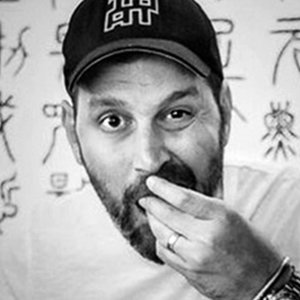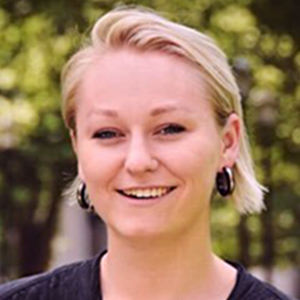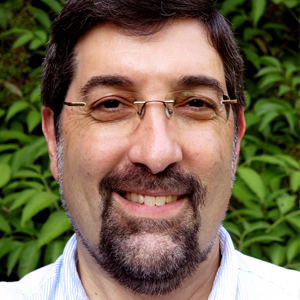
Sebastian is co-director of BASIC, where he works to build international trust, reduce nuclear risks, and advance multilateral disarmament. Sebastian’s work is stimulating a growing global conversation on states’ responsibilities around nuclear weapons, through his leadership of the Programme on Nuclear Responsibilities (in partnership with the Institute for Conflict, Cooperation, and Security at the University of Birmingham). More broadly, he is looking for ways to bring innovative mediation and conflict transformation practices into nuclear diplomacy and to reimagining security for the Anthropocene. Sebastian recently took part in the Strategic Foresight Program hosted by N Square in collaboration with the School of International Futures. He is a member of the Younger Generation Leadership Network and British Pugwash, and the cofounder of the Inclusive Think Tanks breakfast series with Chatham House and the Centre for Feminist Foreign Policy. He was the recipient of the Postgraduate School’s Prize at the School of Oriental and African Studies (SOAS), University of London.
I am most excited to work on projects that… rigorously challenge traditional notions of “how things should be done.”
I am looking for partners who can help me… bring critical thinking about nuclear weapons (back) into popular consciousness.
A moment when I felt most inspired in my work was… seeing the impact of our work on nuclear responsibilities start to play out in national statements and publications.
Innovations in my field that I am most excited to work on… include radical new ways of conducting dialogue on nuclear weapons that better enable cooperation.

Justin Anderson became interested in nuclear issues after living in South Asia for three years as a child and because his dad wrote a book on nuclear power. After graduating from Occidental College, he had the good fortune to receive a Carnegie Endowment for International Peace Junior Fellowship, where he worked for what was then called the Nonproliferation Program. The program introduced Justin to Washington, the nuclear policy field, and his wife (“I hit the lottery!”). After two years working at SAIC on arms control implementation and compliance, he won a Marshall Scholarship, leading to an MA and PhD in war studies at King’s College London. After he returned stateside, Justin served as the first editor of the Department of Defense’s Law of War Manual and worked on arms control issues for the Air Force before becoming a fellow at National Defense University’s Center for the Study of WMD. A former N Square Innovators Network fellow, he’s a proud dad of two boys and lives in Alexandria, VA.

Wardah works as a national security advisor at the U.S. Department of State and serves as co-chair of Women of Color Advancing Peace and Security’s (WCAPS) Chemical, Biological, Radiological, and Nuclear (CBRN) Policy Working Group. She is also a 2019-2020 National Nuclear Security Administration graduate fellow with the Office of Nuclear Smuggling Detection and Deterrence, and was previously a project associate with the chemical security team at CRDF Global.
Wardah became interested in chemical nonproliferation and disarmament after performing an internship with the Organisation for the Prohibition of Chemical Weapons in The Hague. She also interned with several think tanks, including Chatham House, Hudson Institute, and the Center for Strategic & International Studies. Wardah holds a BS in chemical engineering from Texas A&M University and an MA in security policy studies from the George Washington University’s Elliott School of International Affairs, where she specialized in issues related to weapons of mass destruction.
I am most excited to work on projects that… serve as opportunities for teams to collaborate and contribute to change with creative and new ideas that can be converted into action.
I am looking for partners who can help me… create a space where individuals feel safe sharing their point of view regardless of popular opinion. Where individuals feel heard and included in every discussion. Where we as a collective consciously choose to listen and learn from one another, while recognizing each of us will have a unique perspective to share that is backed by a unique set of professional and life experiences that cannot be duplicated, but appreciated for its unique value.
A moment when I felt most inspired in my work was… when I attended my first Women of Color Advancing Peace and Security (WCAPS) event. It was the first time I had seen such a diverse panel of speakers at a think tank in Washington, DC. They left me feeling inspired by their incredible advice that opened doors to new opportunities.
Innovations in my field that I am most excited to work on… include coming up with solution sets to issues ranging from those that have been inherited and passed down generations with very little progress made to address them, to those that call for immediate action, like being more consciously committed to creating a more diverse and inclusive culture in security spaces and beyond.

Nathan is the CCO and co-founder of Technology, Humans And Taste (THAT), a creative company in New York City. THAT employs a proprietary collaborative process called Creative Dim Sum to bring counter-culture solutions to mainstream problems. An Emmy and Webby-winning interactive artist and filmmaker, Nathan’s work has been featured at Sundance, IDFA, and the Tribeca Film Festival and shown at MOMA, the Museum of Contemporary Art in LA, The Whitney, and The New Museum. He is also a past winner of the World Press Photo Contest. Nathan’s bestselling book, The Unorthodox Haggadah: A Dogma-Free Passover for Jews and Other Chosen People, is totally priced to sell at your local bookstore. He is also the co-founder of The Oratory Laboratory, New York’s leading speechwriting boutique.

Jamie is a research assistant at the James Martin Center for Nonproliferation Studies, an affiliate of the Middlebury Institute of International Studies, where she conducts extensive research on emerging functions and applications of new technologies and communicates her findings to policy-oriented audiences. She also analyzes data to better understand North Korean sanctions evasion tactics and trends. Her research interests include missile technology and transatlantic affairs, with an emphasis on Nordic countries.
Jamie is an advisor for Girl Security, which makes national security issues more accessible to young women through training, education, and support. She is also a contributing author for Inkstick Media, a publication dedicated to “de-jargoning” national security issues. Independently, Jamie developed and manages learnwmd.com, a website dedicated to creating a learning commons for WMD education. Jamie has previous experience at the US Department of State, the Center for Arms Control and Nonproliferation, the American Enterprise Institute, and Columbia University’s School of International and Public Affairs.
I am most excited to work on projects that… challenge preexisting assumptions.
I am looking for partners that can help me… sustainably grow and develop my research and technical skills to make an impactful change in the nuclear space.
A moment when I felt most inspired in my work was… when a high-level expert in the field sat down with me for drinks, answered all of my “trivial” questions, and also told me they were excited to watch the work I was doing (not necessarily only what I was “going to do”).
Innovations in my field that I am most excited to work on… include imagery analysis, accessibility issues, and ballistic missile technology regulations.

Stephen is a nonresident senior fellow at the Bulletin of the Atomic Scientists and an independent consultant with 35 years of experience analyzing, writing about, and speaking out on nuclear weapons issues at both the grassroots and national levels. He previously served as editor of The Nonproliferation Review, publisher and executive director of the Bulletin of the Atomic Scientists, guest scholar and project director at the Brookings Institution, Washington representative for the Alliance for Nuclear Accountability, and legislative director for nuclear campaigns at Greenpeace USA. Stephen is the author of numerous articles and reports, including “Nuclear Security Spending: Assessing Costs, Examining Priorities” (Carnegie Endowment for International Peace, 2009). He is also the editor and co-author of the groundbreaking book Atomic Audit: The Costs and Consequences of U.S. Nuclear Weapons Since 1940 (Brookings Institution Press, 1998). His passion for nuclear policy was ignited and nourished at the University of California at Santa Cruz, where he earned a BA in sociology with a minor in politics.
I am most excited to work on projects that… make essential nuclear history and weapons policies more readily accessible and understandable in order to influence public and official opinion and drive lasting change.
I am looking for partners that can help me… meet people—including in the television/film/theatrical community—with whom I can collaborate on projects that make the best use of my skillset and expertise.
A moment when I felt most inspired in my work was… when I co-directed a national grassroots coalition and campaign to shine a light on the Department of Energy’s dangerous nuclear weapons factories and, for the first time, successfully block the confirmation of the president’s unacceptable nominee to oversee them.
Innovations in my field that I am most excited to work on… include using television and film to tell compelling, fact-based stories about nuclear weapons and nuclear security issues in ways that entertain, inform, motivate concern, and inspire action.







